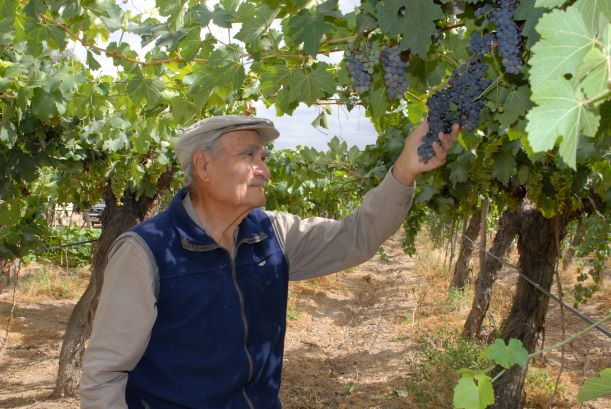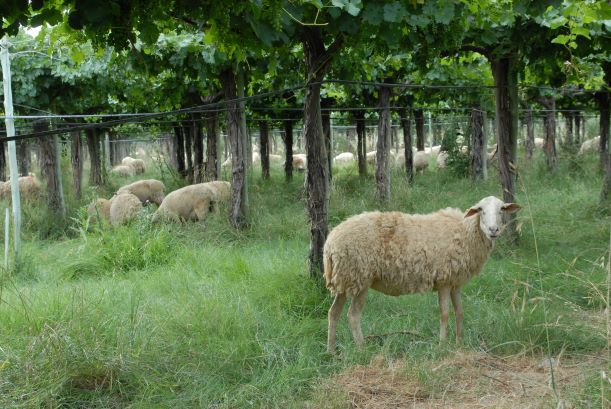
October Featured Vendor: La Riojana Wines
Although our Featured Vendor of the month is usually one of our local vendors, this month we have selected a vendor who is also a cooperative, as part of our month-long Co-op Month celebration.

Dating back four generations, La Riojana, one of the largest cooperative wineries in Argentina, has been in existence since the 1940s. At that time, families moving into La Riojana province were planting vines and growing grapes, working together to form what has become a successful cooperative business that has more than stood the test of time. Over those years, hundreds of families moved into the area and became member- producers, many of whom are still part of the cooperative to this day.
According to the company, “The success of the La Riojana cooperative lies in the fact every one of their members is as important as the other, regardless of size or how long they have been part of the winery. Every member and every grower gets an equal vote in deciding what key steps and decisions the cooperative takes. Many of their 500 plus growers can trace their families back through four generations of working as part of the La Riojana cooperative.”
Eighty percent of La Riojana’s growers own no more than three hectares of land, the equivalent of 7.4 acres. The company’s total planted area of 4,215 hectares (10,415 acres) is divided into seven wineries, with the main winery in the town of Chilecito. Most of their workforce of 250 people work at that location and live in town or nearby villages. Taken as a whole, the six wineries can produce roughly 52 million liters (13.7 million gallons) of wine, which equals around 60 million kilos (132 million pounds) of grapes, per year.
One aspect of La Riojana’s success is the climate of the Famatina Valley. According to the company, “The grapes enjoy both the benefit of brilliant sunshine during long hot days and the comfort of cold nights. This is the ideal combination for growing superb healthy fruit, bringing depth and color to the red wines and aroma and flavor to the whites…What’s more, the Famatina valley is surrounded by the Andes, Famatina and El Velazco mountains, which run northwest to south-east, providing good ventilation and protection for the vines.”

As with any cooperative, one of the most important aspects of the business model is the support and benefits provided to the company’s members. These benefits include the guaranteed purchase of grapes at higher-than-market prices, transportation of grapes from the vineyard to the cooperative, free technical assistance, group purchasing of supplies to keep costs down, collective frost insurance, and access to an emergency fund. La Riojana also provides funds for social and economic development projects in area communities, through the premium growers receive from the sale of certified Fair Trade wine. These funds have been used for a new secondary school and water infrastructure in the remote village of Tilimuqui; computer rooms, equipment, and free IT courses; back-to-school kits for the children and grandchildren of members and workers; solar power in villages; and medical equipment and medicines to local first aid centers. Since 2006, 11 million Argentinian pesos of Fair Trade premiums have funded over 30 of these kinds of projects.
“Our Fair Trade certification is very important to us primarily because the principles followed by Fair Trade are similar to those followed by our cooperative. The certification has enabled us to achieve social goals, which have greatly benefitted the community, our workers and members. The fact that we are Fair Trade and we have good quality wines has also allowed us to win over new markets and therefore increase our exports,” says Mario Gonzalez, president, La Riojana cooperative.
Along with their Fair Trade certification, La Riojana also produces certified organic wines, having first received that certification in 2000. They are the largest producer of organic wines in Argentina, with organics making up 15 percent of their total production and almost 50 percent of their exports. Part of their organic process includes using around 5,000 sheep as weed control and producers of organic fertilizer.

